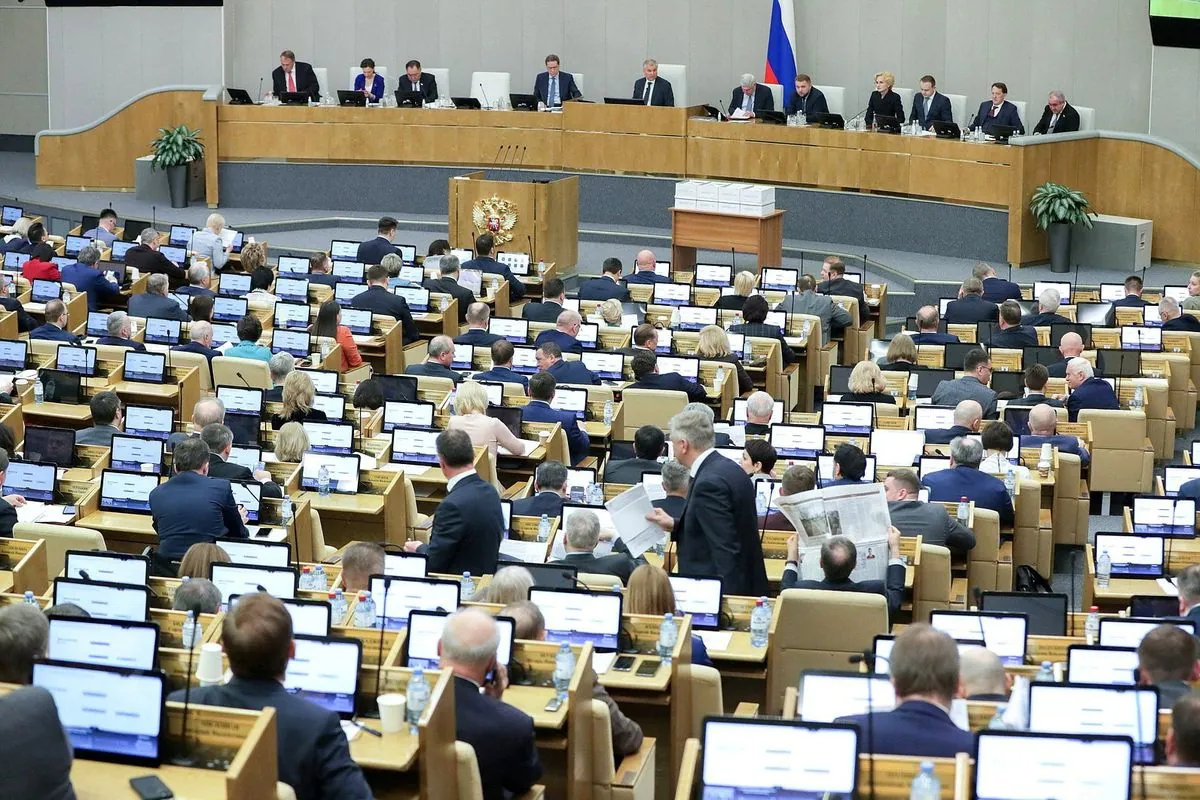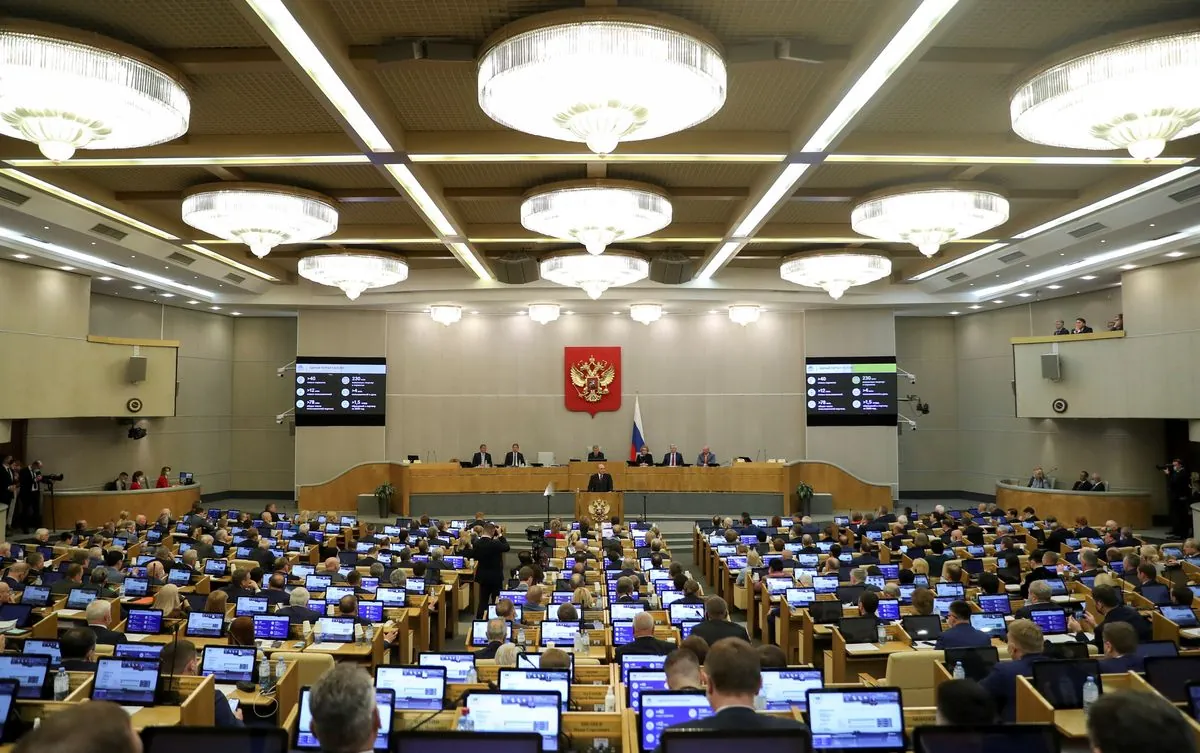Russia Moves to Ban Adoptions from Gender-Change-Allowing Nations
Russian parliament backs legislation prohibiting adoptions from countries permitting gender changes. The move, supported by 397-1 votes, aims to protect "traditional values" and children's welfare.

In a significant legislative move, the Russian State Duma has given initial approval to a bill that would prohibit nationals from countries allowing gender changes from adopting Russian children. This decision, made on September 25, 2024, reflects Russia's ongoing emphasis on what it terms "traditional values" and its increasing restrictions on LGBT rights.
The legislation received overwhelming support in its first reading, with 397 members voting in favor and only one against. This strong backing suggests the bill is likely to become law, following the trend of Russia's recent policies aimed at reinforcing conservative social norms.
Vyacheslav Volodin, chairman of the Duma and a close associate of President Vladimir Putin, stated:
"It is necessary to protect our children from the dangers they may face when they are adopted or fostered by citizens of foreign countries where gender reassignment is allowed."
Volodin noted that numerous Western nations permit gender changes, implying a perceived threat to Russian children adopted abroad. This stance aligns with Russia's broader political narrative, which often portrays the country as a bastion of traditional values in opposition to what it sees as Western moral decay.

The proposed adoption ban is part of a wider crackdown on LGBT rights in Russia. In 2023, the country introduced a ban on legally or medically changing gender, further tightening restrictions that began with the 2013 law against "LGBT propaganda." These measures reflect a significant shift from 1993 when Russia decriminalized homosexuality.
Russia's approach to international adoptions has been restrictive for over a decade. In 2012, the country banned adoptions by U.S. citizens through the Dima Yakovlev Law, named after a Russian child who tragically died in U.S. care. This policy, combined with recent geopolitical tensions, has led to a dramatic decrease in foreign adoptions. In 2023, only six Russian children were adopted by foreign nationals, a stark contrast to the peak of over 9,000 international adoptions in 2004.
The Russian government's focus on demographic issues and traditional family structures is evident in its policies. Russia has one of the highest rates of children in institutional care globally, and the government has been promoting measures to increase the country's birth rate. The Russian Orthodox Church, which holds significant influence over social policies, has been supportive of these conservative measures.
While Russia ratified the UN Convention on the Rights of the Child in 1990, its recent policies have faced international criticism, particularly regarding LGBT rights. The European Court of Human Rights has ruled against Russia's "gay propaganda" law, though Russia withdrew from the court's jurisdiction in 2022.
As the largest country by land area, Russia's political decisions have far-reaching implications. The United Russia party, which has held a majority in the State Duma since 2003, continues to shape the country's legislative landscape. With constitutional amendments in 2020 potentially allowing Putin to remain in power until 2036, the emphasis on traditional values and restrictive social policies is likely to persist in Russian politics for the foreseeable future.


































